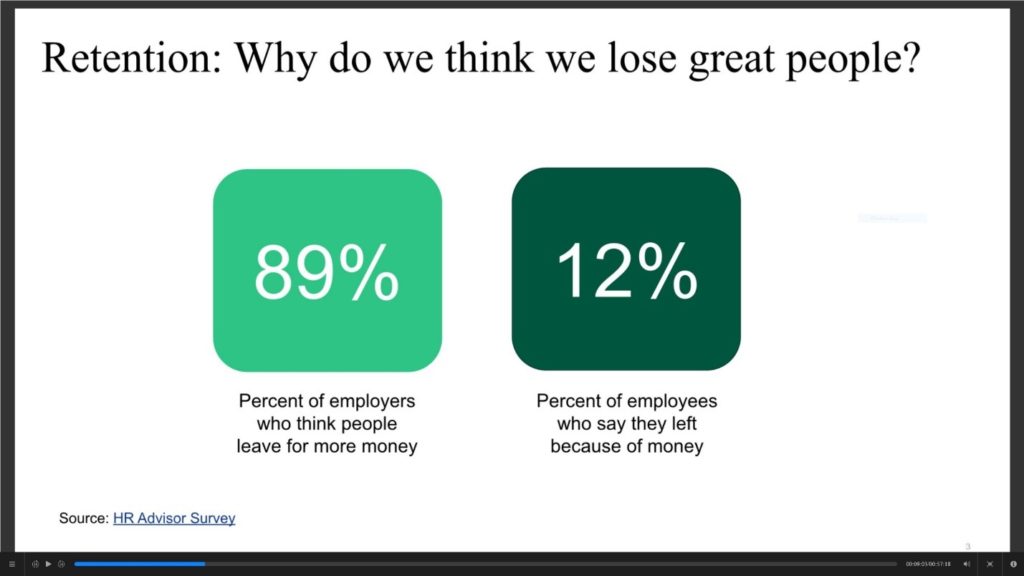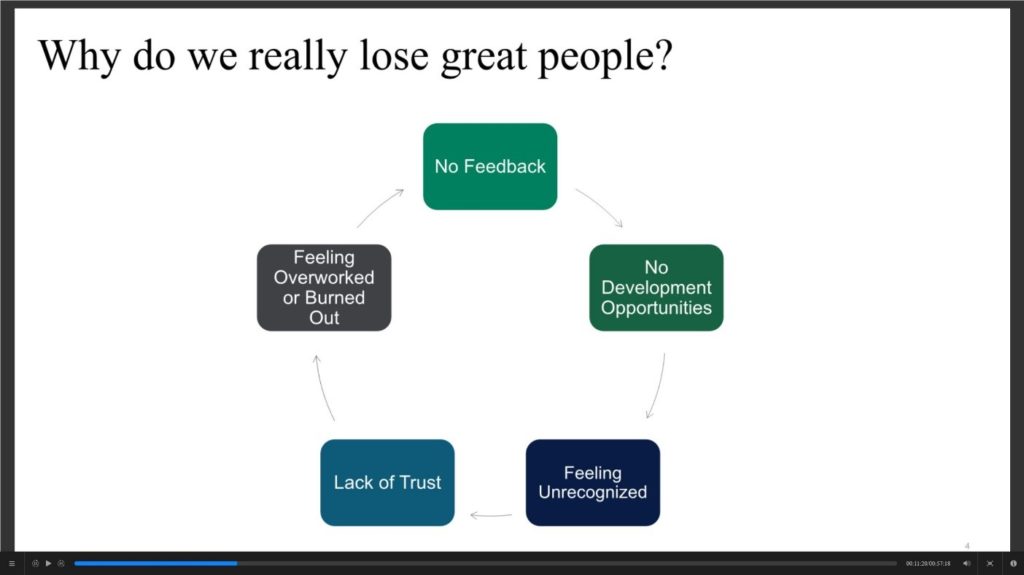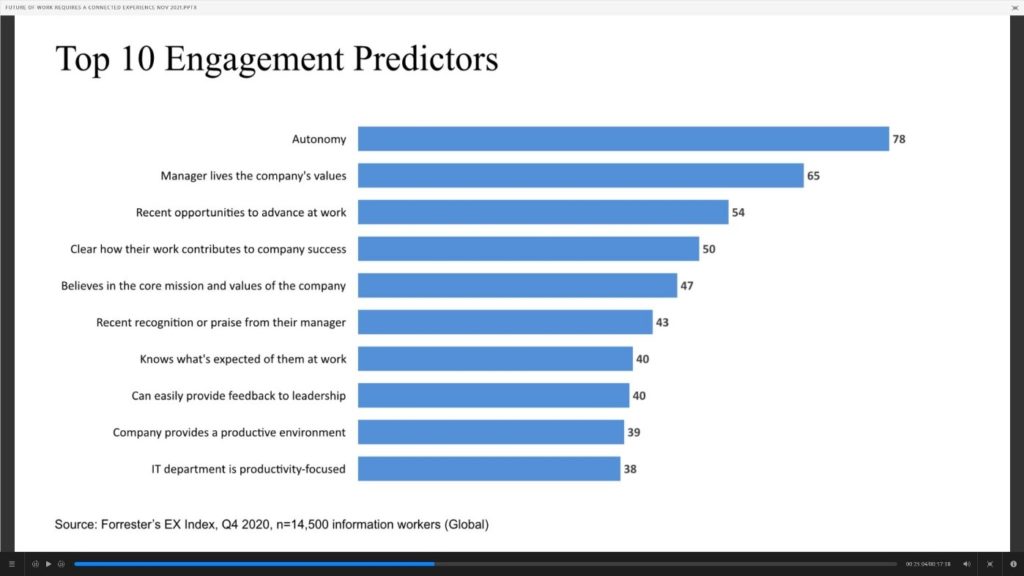The job market seems forever changing as technology drives new career opportunities that are in hot demand, while also threatening the existence of legacy jobs that require low skills. In fact, there has never been a better time for in-demand skilled workers to land the jobs of their dreams.
I just attended a webinar by Training Magazine on this subject that was presented by David Johnson a principal analyst at Forrester. The webinar was titled the Future of Work Requires a Connected Experience. And the connection he was talking about was not to social media but rather a human connection. You can watch a replay of the webinar and learn about other webinars and resources at Training Magazine Network. Forrester did a large study on employee retention and engagement amongst other things to find out firstly why people were leaving their current jobs. Over 89% of managers said they thought people had left because of money, but only 12% of employees said the reason was money.

Most said it was due to no feedback followed by no development opportunities, feeling unrecognized, lack of trust and finally feeling overwhelmed at work.
These issues are all fixable by the managers. How many leadership and management books have been written on these issues affecting the employee work experience? How many articles, videos, trainings have been delivered? Yet still the measurement needle has moved very little if at all.
I remember when I started in the training and development field over 27 years ago and one of the management training programs I often delivered was for first line managers and supervisors. There was a module on employee motivation along with an exercise and questionnaire. The participants were given a list of ten motivational factors and were asked to put them in the order they thought were most significant to employees. Most chose money. I then revealed a study from that time showing that employees had put money at only number four.
My point is little has changed over these years, yet employees have the power of choice right now and want an experience of employment that make them feel they are important and that what they do matters. Giving them feedback and recognition is an easy and no cost way of doing this.
The problem goes back to management and often is caused by company culture and putting managers in place who do not understand people or do not care about their needs. More management training does not solve the problem if you are training the wrong person for the job.
Unless top management of organizations make the employee experience a priority and reward management behaviors that fills the needs of employees, turnover and low engagement will continue. The solutions are simple, but it takes strong and insightful leadership to implement.


